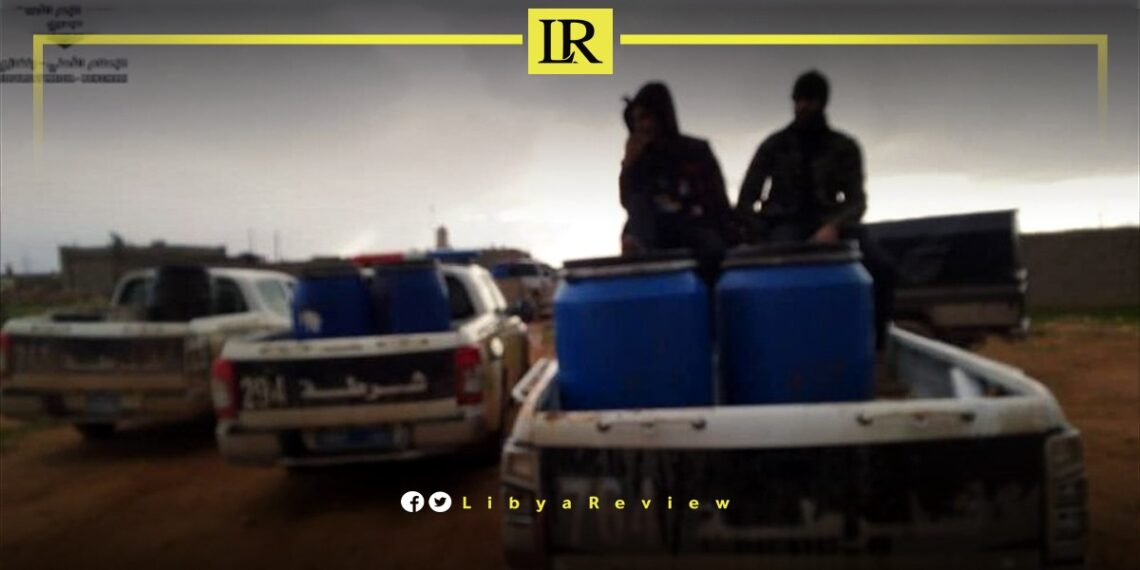Members of the Criminal Investigation Department of Benghazi’s Security Directorate, tasked with the joint security plan, conducted a raid on a local liquor manufacturing facility in the Al-Fuwakhat area.
The operation was carried out following instructions from the head of the joint security chamber, Benghazi Security Director General Ahmed Al-Shaamakh, to combat the scourge of drugs and intoxicants.
Information received by the Criminal Investigation Department members about the local liquor factory in the Al-Fuwakhat area prompted an immediate response. Patrols from the Criminal Investigation Department, along with other security agencies involved in the security plan, moved to the Al-Fuwakhat area. Upon arrival, they raided the factory and seized a quantity of homemade liquor and all the equipment used in its production.
This raid is part of a broader crackdown on illegal substances in Benghazi, reflecting the local authorities’ commitment to curbing illegal activities and ensuring public safety. The operation is expected to have a significant impact on reducing the availability of illegal liquor in the region.
Early January, the Benghazi Security Directorate announced the seizure of firearms and hand grenades during security stops conducted by police.
According to a statement, security stops and searches conducted by the Sidi Khalifa Police Center led to the discovery of firearms, along with abandoned ammunition and shells in an open area.
The security forces handed over the confiscated weapons and ammunition to the relevant authorities.
Last week, the Spokesperson for the Libyan National Army (LNA), Brigadier General Ahmed Al-Mismari, stressed the LNA’s commitment to “maintaining security, thwarting external threats, and preventing the flow of weapons, ensuring the safety of Libya.”
In a televised statement, Al-Mismari highlighted the success in forming anti-terrorism units in 2023, and the strategic training plan implemented for the armed forces.
He emphasised the impact of military developments in neighbouring countries on Libya’s security. Especially in the South, where the Armed Forces effectively countered Chadian militia movements.
Specialised units combating terrorism were established, demonstrating flexibility in responding to various challenges.
Al-Mismari underscored the LNA’s foundation in principles since 2014, with soldiers trained to fight under diverse circumstances. Despite financial constraints and governmental negligence, internal cohesion remains a priority.


